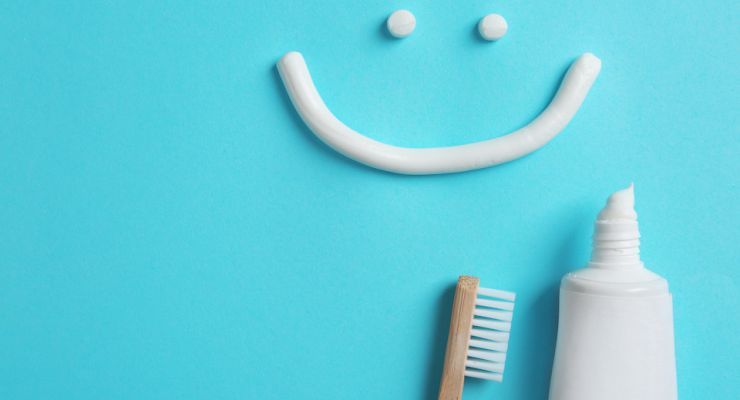Though you may think you know how to look after your teeth, it is always good to get a little refresher and help remind you why it’s important to brush for the full two minutes and schedule bi-yearly trips to the dentist. There are no shortcuts when it comes to oral health, and looking after your mouth and teeth now is the best way to avoid dangerous complications in the future.
Visit the dentist regularly
Though everyone brushes their teeth (or should), not everyone prioritizes going to the dentist for regular cleanings. The truth is, your oral health matters and taking a few minutes every six months to check in with your doctor and get a good thorough cleaning could help catch health issues in your mouth and prevent further damage such as gum disease or cavities. If you don’t have dental insurance through your work, contact your dentist to see if they can offer you a cash discount. Most regular cleanings run around $100. A small price to pay for your health.
Brush at least twice a day
Brushing your teeth isn’t just a good way to eliminate bad breath; it can help eradicate plaque, prevent gum disease, and keep your mouth healthy. Your teeth won’t grow back if you don’t look after them, so be sure to brush for at least two minutes, twice a day. Try setting a timer or singing a song in your head that is around two minutes long to ensure that you are brushing long enough. Don’t forget your molars, gums, and tongue as well.
Use proper brushing technique
Great. You brush your teeth at least twice a day. But are you actually doing it right? According to the American Dental Association, you should start with your toothbrush at a 45-degree angle to your gums and move your brush in short, back and forth motions, making sure to cover all of your teeth and gums. Switch to holding the brush vertically and use short up and down motions to hone in on your front teeth that are often overlooked.
Floss everyday
If your gums bleed at the dentist when they floss your mouth, it’s probably a pretty good sign that you should be flossing more. At least once a day, grab a string of floss and wiggle it between your teeth, forming a C shape to the left and then to the right. This will ensure that you get out all of the extra food debris and will certainly benefit your oral health. Water flossing is also an incredible easy and effective option if you are searching for an alternative to traditional floss.
Limit sugar intake
Cutting processed sugar out of your diet is beneficial for a myriad of reasons. While most people connect it to a shrinking of the waistline, sugar reduction in your diet is also linked to a healthier mouth and improved oral hygiene. Sugar sticks around on your teeth and decreases the strength of your enamel, which can lead to tooth decay and breakage. Don’t forget, sugary drinks such as soda and juice are often the worst culprits of this harmful substance.
Drink water
Once again, drinking water isn’t just good for your teeth. Your body needs proper hydration to function optimally and keep all of your systems running. Without it, things start to shut down, and your body sends you signals such as a headache or dizziness. When it comes to oral hygiene, water is critical because it works to rinse off some of those food particles and any residue left on your teeth between brushing sessions. Try swishing your mouth out with water after every meal.
Reduce alcohol and tobacco intake
It’s no secret that tobacco use can lead to mouth cancer. While chewing tobacco is often seen as a safer alternative to cigarettes, people who dip or chew get just as much nicotine as those who smoke and are exposed to at least 30 cancer-causing chemicals. What you may not know is that alcohol contains a mineral known as phosphorous, which, while healthy in normal amounts, can actually prove harmful in excess, leading to issues with gum disease and tooth decay. It may be a good idea to evaluate your alcohol consumption and ensure that you aren’t drinking over the recommended amounts.
Look after your brush
Experts recommend that you replace your brush about every three months or earlier if the bristles become frayed and worn. Don’t store your toothbrush in a case or enclosed area as this could cause bacteria to breed, but rather leave it out, standing upright to air dry. It is always a good idea to keep your toothbrush in a jar or other container in your medicine cabinet (if you have one) to keep toilet spray from getting to it.
-Susan Patterson

